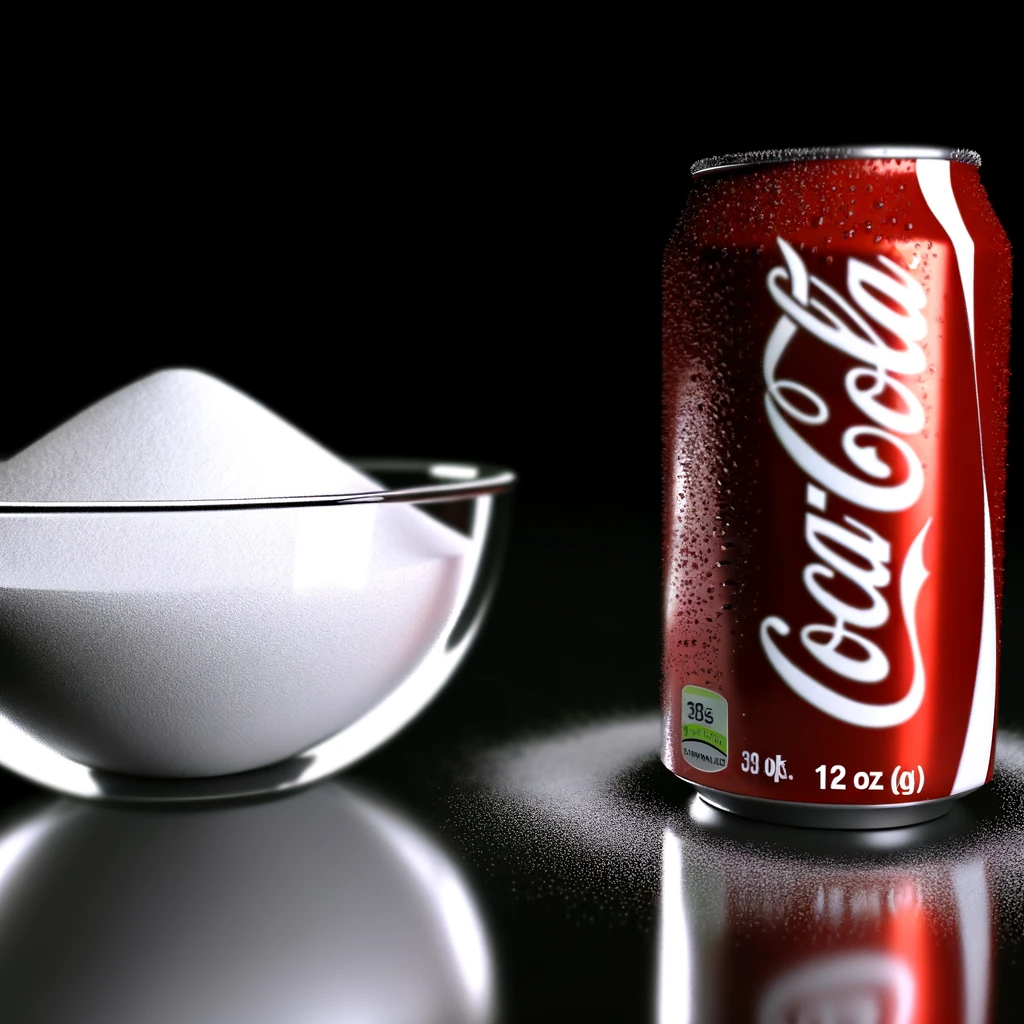
Coke’s Impact on Your Diet
Coke’s Impact on Your Diet. Hey there, fellow health adventurers! Today, we’re popping the tab on a topic that’s fizzed up quite a bit of curiosity and debate in the wellness community – the nutritional facts of our beloved fizzy companion, Coca-Cola. Whether you’re riding the weight loss wave or just looking to fine-tune your diet, understanding what’s in that iconic red can is crucial. So, let’s dive in, shall we?

The Sweet, Fizzy Lowdown
First off, let’s talk about what Coke brings to the party, nutrition-wise. A standard 12 oz (355 ml) can of classic Coca-Cola packs about 140 calories, all of which come from sugar. Yep, you heard right – it’s a sugar bonanza, with about 39 grams of sugar in each can. That’s roughly equivalent to 9.75 teaspoons of sugar. Imagine spooning that much sugar into your mouth in one go. Mind-boggling, right?
Coke’s Impact on Your Diet. Now, I’m not here to sugarcoat the truth (pun intended) – those calories are what we call “empty calories.” They provide energy but little to no nutritional value in terms of vitamins, minerals, or fiber. It’s like throwing a party where only one guest shows up. Sure, it’s a guest who knows how to get the party started (hello, instant energy boost!), but they’re not really contributing to the overall vibe in a meaningful way.
The Weight Loss Whirlpool
If you’re navigating the choppy waters of weight loss, those 140 calories can add up faster than you can say “Coca-Cola.” Drinking just one can a day adds up to an extra 980 calories a week, which could potentially hinder your weight loss efforts if you’re not compensating with physical activity or other dietary adjustments.
But here’s where it gets a bit tricky. Coke, like any other food or drink, isn’t inherently bad. It’s all about moderation and balance. If you’re craving that crisp, refreshing taste, consider options like Diet Coke or Coke Zero, which offer the same great taste without the caloric baggage. Just be mindful of the artificial sweeteners, as they can sometimes trigger cravings for more sweets.
The Hydration Situation
When it comes to hydration, water is the undisputed champion. But sometimes, you just want something with a bit more personality, right? While Coke can quench your thirst in the short term, it’s not the best option for hydration due to its caffeine and sugar content. These can actually lead to dehydration if you’re not careful. So, if you’ve been sweating it out or you’re just plain thirsty, reach for water first. Consider Coke as an occasional treat rather than your go-to thirst quencher.
The Bottom Line: Balance and Moderation
Navigating the nutritional facts of Coke doesn’t have to be a buzzkill. It’s about making informed choices that align with your lifestyle and health goals. If you love Coke and can’t imagine giving it up entirely, that’s totally okay! Life’s too short to not enjoy the things we love. Just remember the golden rules of balance and moderation.
Coke’s Impact on Your Diet
Incorporating Coke into a balanced diet means enjoying it in moderation while ensuring the rest of your diet is rich in whole foods – fruits, vegetables, whole grains, lean proteins, and healthy fats. This way, you’re not relying on Coke for a significant portion of your daily calorie intake, and you can still enjoy the fizzy delight without derailing your health goals.
The Wrap-Up
So, there you have it – a bubbly breakdown of Coke’s nutritional facts and how they fit into a weight loss journey. Remember, it’s not about cutting out everything you love; it’s about enjoying those things mindfully and in moderation. After all, a happy diet is a sustainable diet, and sustainability is key to achieving and maintaining your health and weight loss goals.
Until next time, keep it balanced, keep it bubbly, and most importantly, keep enjoying the journey. Cheers to making informed choices and finding the perfect balance that works for you!
Disclaimer: This blog may contain affiliate links, and I might earn a commission at no extra cost to you if you purchase through these links. Thanks for supporting the fizzy explorations!
Read more about Overcoming Weight Loss Plateaus